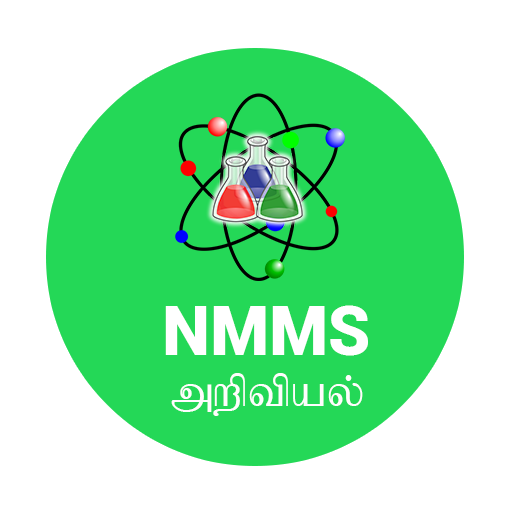

SAT Mathematics - Arithmetic Progression
Exam Duration: 45 Mins Total Questions : 30
If the following numbers are AP,i.e. if they form an AP, find the common difference d and write three more terms
3,3+\(\sqrt{2}\),3+2\(\sqrt{2}\),3+3\(\sqrt{2}\),...
- (a)
\(3+4\sqrt{2},3+5\sqrt{2},3+3\sqrt{2}\)
- (b)
\(3+4\sqrt{2},3+5\sqrt{2},3+6\sqrt{2}\)
- (c)
\(2+4\sqrt{2},2+5\sqrt{2},2+6\sqrt{2}\)
- (d)
none of these
Find the (i) nth term and (ii) 16th term of the AP 3, 5, 7, 9,11...
- (a)
(2n+1),33
- (b)
(3n+1),23
- (c)
(2n+1),23
- (d)
none of these
Find the 105th term of AP 4, \(4\frac{1}{2},5,5\frac{1}{2},6, ....\)
- (a)
65
- (b)
56
- (c)
66
- (d)
none of these
How many terms are in AP 7,11,15, ........ 139?
- (a)
43
- (b)
24
- (c)
34
- (d)
none of these
If the 8th term of an AP is 31 and its 15th tenn is 16 more than the 11th term, find the AP
- (a)
3,7,11,15,19,...
- (b)
3.5.7.11,...
- (c)
2. 3. 5. 7...
- (d)
none of these
If the 8th term of an AP is zero. Prove that its 38th term is triple its 18th term
- (a)
(3 x a)
- (b)
3 x T18
- (c)
3 x d
- (d)
none of these
If the nth term of a progression has a linear expression in n, this progression is an AP if every terms of the given progression differs from its preceding term by
- (a)
1
- (b)
constant
- (c)
can't be determined
- (d)
none of these
Find four numbers in AP whose sum is 20 and the sum of whose squares is 120
- (a)
(2,4,5,8)
- (b)
(3,4,5,6)
- (c)
(2,4,6,8)
- (d)
none of these
Find the sum of all two digit Positive numbers
- (a)
2375
- (b)
2475
- (c)
2575
- (d)
none of these
Find the sum of all three-digit natural numbers which are multiples of 7
- (a)
60336
- (b)
70326
- (c)
70336
- (d)
none of these
How many terms of AP 3, 5, 7, 9 ..... must be added to get the sum 120?
- (a)
20
- (b)
15
- (c)
10
- (d)
none of these
How many terms of AP 17, 15, 13, 11 .... must be added to get the sum 72?
- (a)
Sum of first 3 terms = Sum of first 2 terms
- (b)
Sum of first 6 terms = Sum of first 12 terms
- (c)
Sum of last 3 terms = Sum of first 12 terms
- (d)
none of these
If the sum of the first p terms of an AP is the same as the sum of its first q terms (where p≠q) then the sum of its first (p+q) terms is
- (a)
1
- (b)
2
- (c)
0
- (d)
none of these
If the sum of first n, 2n, 3n terms of an AP be S1 , S2 and S3 respectively, then
- (a)
S2=2(S2-S1)
- (b)
S3=3(S2-S1)
- (c)
S4=S3(S3-S1)
- (d)
none of these
Which term of the A.p. 4, 9, 14, 19, .... is 109?
- (a)
14th
- (b)
18th
- (c)
22nd
- (d)
16th
How many tenns are there in the arithmetic series 1+3+5+ .... +73+75?
- (a)
28
- (b)
30
- (c)
36
- (d)
38
51+52+53+.... +100 =?
- (a)
3775
- (b)
4025
- (c)
4275
- (d)
5050
How many terms are there in the AP 7,10,13, .... 15?
- (a)
50
- (b)
55
- (c)
45
- (d)
49
The 4th term of an AP is 14 and its 12th term is 70. What is the first term?
- (a)
-10
- (b)
-7
- (c)
7
- (d)
10
Which term of the AP 72, 63, 54,.... is 0?
- (a)
8th
- (b)
9th
- (c)
10th
- (d)
11th
The 8th term of an AP is 17 and its 14th term is 29. The common difference of AP is
- (a)
3
- (b)
2
- (c)
5
- (d)
-2
Which term of the AP 20, 17, 14,.... is the first negative term?
- (a)
8th
- (b)
6th
- (c)
9th
- (d)
7th
The first, second and last term of an AP are respectively 4, 7 and 31. How many terms are there in the gi AP?
- (a)
10
- (b)
12
- (c)
8
- (d)
13
If the nth term of an AP is (5n - 2), find its
i. First term
ii. Common difference
iii. 19th term
- (a)
3,5,93
- (b)
2,5,93
- (c)
3,5,92
- (d)
none of these
Find the arithmetic mean between (a - b) and (a + b)
- (a)
b
- (b)
a
- (c)
ab
- (d)
none
Sum of three numbers in AP is 21 and their product is 231. Find the numbers.
- (a)
3,7,11
- (b)
3,6,12
- (c)
7,8,9
- (d)
none of these
Find the sum of first 24 terms of the AP 5, 8, 11,14 .,...
- (a)
848
- (b)
948
- (c)
748
- (d)
none of these
Find the sum of first 25 terms of an AP whose nth term is given by Tn=(7 - 3n)
- (a)
-700
- (b)
-800
- (c)
+600
- (d)
none of these
Find the third terms of the sequence whose nth terms is given by an=3+\(\frac{2}{3}n\)
- (a)
2
- (b)
3
- (c)
4
- (d)
5
The AP whose sum of n terms is 2n2+n is given by
- (a)
3,7,11,15..
- (b)
3,6,9,12..
- (c)
3, 8, 13, 18:.
- (d)
3, 4, 5, 6..







